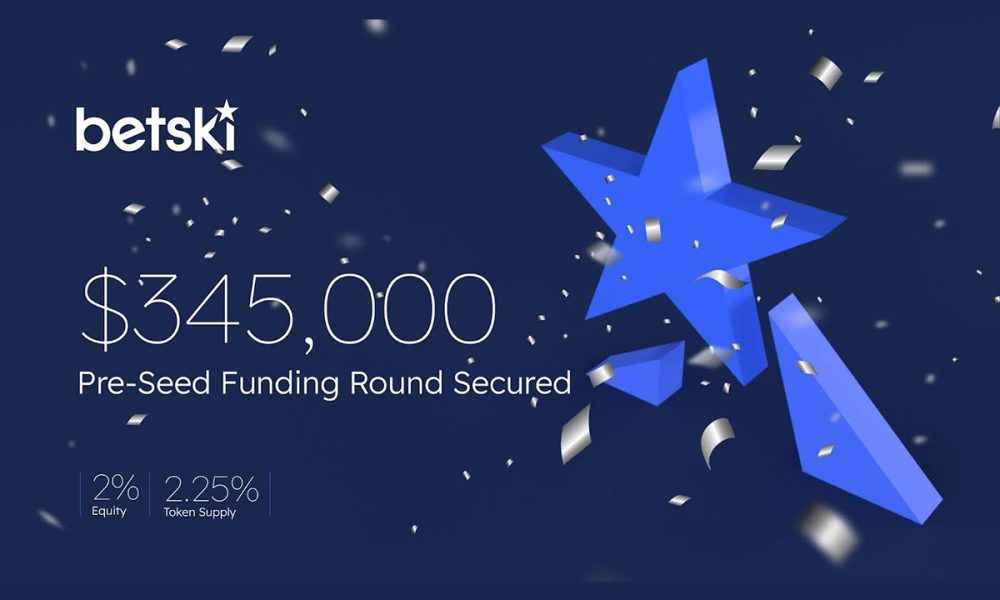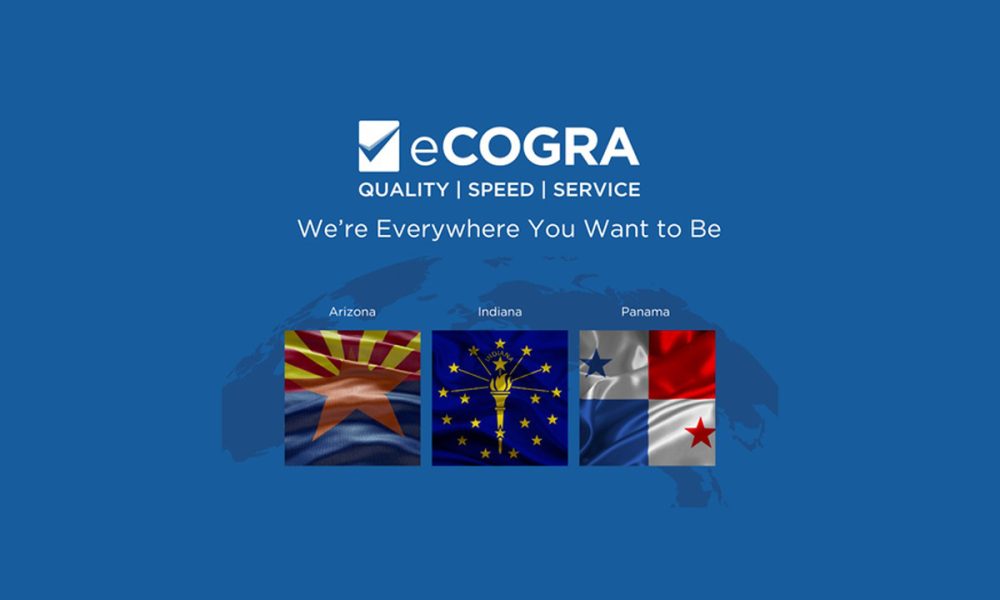iGaming Industry
Leading Blockchain Law Firm MME Introduces New Legal Framework to Shape the Future of Tokenized Assets

Crypto Valley Association member introduces concept of Blockchain Crypto Property (BCP) to provide classification and risk-assessment of crypto assets
Crypto Valley Association (CVA), the Swiss-based not-for-profit association supporting the development of blockchain and cryptographic related technologies and businesses, today distributed a paper on behalf of MME and Blockhaus, proposing a new method for token classification. Both MME, the leading Swiss consultancy firm for law, tax and compliance in Blockchain applications and Blockhaus, a developer of decentralized investment banking platform applications for tokenized ecosystems, are active members of the CVA. The framework was developed specifically for utilization for regulatory and critical risk-assessment purposes.
The paper, entitled “Conceptual Framework for Legal & Risk Assessment of Blockchain Crypto Property,” introduces the concept of Blockchain Crypto Property or BCP. BCP is defined as digital information that contains all elements of a property right that is registered on a blockchain or in an alternative digital ledger, which can be transferred via protocol, that may carry out additional functions governed by a Smart Control System, following coded or manual input.
“Information on a blockchain is unlike any other previous incarnation of digital information. Blockchain Crypto Property shares many of the characteristics attributed to physical and other tangible properties as we understand them in the law, and yet BCPs are expanded with purely digital characteristics as well. These are groundbreaking concepts that require further examination and novel classification. Our paper examines the legal and risk characteristics of this completely new kind of property. A common understanding of the underlying nature of different kinds of cryptographic tokens would allow policymakers to construct thoughtful and enforceable legal and regulatory frameworks. Moreover, an agreed-upon framework could also provide investors and issuers with standard tools to evaluate, mitigate, and communicate risks in token design and launches,” said Dr. Luka Müller, Partner at MME.
The MME and Blockhaus paper contains a functional approach in defining the three main categories of BCPs: tokens without a counterparty, tokens that have a counterparty, and a completely new asset-class, tokenized co-ownership. The “without counterparty” classification is represented by native currency tokens, infrastructure tokens, and application tokens that do not grant holders any rights and have no underlying assets; tokens like Ethereum and Bitcoin fall into this class. The second classification, or “counterparty class,” refers to tokens which include any form of a relative right, such as the right to receive an asset or financial payment, either against the token generator or a third-party. The final classification, the “co-ownership class,” denotes tokens with smart contracts that are programmed or registered on the blockchain, allowing individuals to participate and co-own a technical platform or a form of intellectual property.
The main purpose of functional categorization is to grant a structured approach for legal, regulatory and tax assessment purposes. In addition, the BCP concept provides tools that will enable interested parties to make clear and well-founded analyses of tokens from legal and risk perspectives, in turn making it easier to identify frauds and uncover potential flaws. Consequently, the ability to categorize assets and assess risks is of huge value not only to regulators but to investors and token issuers.
In addition to the three BCP classes, MME has devised risk cases in order for regulators and potential investors to assess the risks associated with tokenized assets. These fall under four categories: functionality and protocol-related risks, such as network attacks and faults; storage and access of private key-related risks, like hacked wallets and exchanges; market-related and counterparty risks, such as insider trading and liquidity risks; and regulation and money laundering-related risks.
“The issue of the legal and regulatory status of cryptocurrencies is currently the most pressing concern in our community. Crypto Valley Association has called on regulators to devise clear, comprehensive, and flexible regulation on tokenized assets that protects investors but also supports innovation. We believe that MME’s BCP concept is an important contribution to this debate. It can be of immense use to both regulators seeking to understand cryptocurrencies and investors looking to evaluate their risks,” said Oliver Bussmann, President at Crypto Valley Association.
With offices in Zurich and Zug, MME is a leading consultancy firm in law, tax, and compliance. MME advises and represents companies and private clients in commercial, corporate and private business matters. Prominent in the blockchain legal space, MME has assisted many crypto organizations set up in Switzerland.
“We are now entering a new age of the tokenized ecosystem. In order to understand the opportunities associated with tokenized assets, while also recognizing the risks, we require a clear conceptual framework to open the doors of the tokenized economy for mainstream adoption. The BCP concept we are proposing should serve as a method of structured discussion between all participants of the blockchain community,” said Dr. Müller.
Headquartered in the Swiss canton of Zug, Crypto Valley Association is the independent, government-supported association established to take full advantage of Switzerland’s strengths to build the world’s leading blockchain and cryptographic ecosystem, working with government to foster the development of pioneering digital technologies in Switzerland and internationally. To date, four of the five largest token sales recorded have been completed by companies based here in Switzerland, attracting a combined investment in bitcoin and ether of over $600 million USD.
“Conceptual Framework for Legal & Risk Assessment of Blockchain Crypto Property” can be accessed here. The paper was written by, Dr. Luka Müller, Stephan D. Meyer and supported by Christine Gschwend and Peter Henschel.…
The post Leading Blockchain Law Firm MME Introduces New Legal Framework to Shape the Future of Tokenized Assets appeared first on Eastern European Gaming – News – Interviews – Legal Market Updates – Premium Reports – Events – Directory.
Source: EEGaming.
gaming operators
XT.COM Announces Listing of Zenex

XT.COM has announced the listing of ZNX (Zenex), an AI-driven payment infrastructure token designed to revolutionize the $107B+ iGaming industry. The ZNX/USDT trading pair will be available in the Innovation Zone (RWA), providing traders with access to a token that brings real-world business utility, enhanced fraud protection, and verifiable revenue-sharing mechanisms to online and land-based gaming operators.
Imagine a payment ecosystem where betting operators no longer need to freeze millions in capital reserves, where players enjoy seamless transactions across continents, and where token holders benefit directly from the growing gaming industry. That’s not a future promise – it’s what Zenex delivers today.
At its core, Zenex solves the gaming industry’s biggest challenge – the massive capital reserves required by traditional payment systems. Through the innovative blockchain and AI infrastructure, gaming operators who hold ZNX can reduce their reserve requirements by up to 30%, instantly freeing up capital for growth and operations.
The Zenex ecosystem combines multiple revenue streams that directly benefit ZNX token holders:
• Operational Betting Shops: The expanding network of profitable locations across Kenya generates consistent revenue, with systematic buybacks supporting token value.
• Advanced Payment Infrastructure: Already processing millions in monthly transactions, the payment solution helps operators reduce costs while improving transaction efficiency.
• White-Label Gaming Solutions: The proprietary platform powers multiple online casinos and betting operations, generating steady transaction volume.
• Innovative Mini-Games Platform: A suite of engaging games drives player engagement and creates additional revenue streams.
• Premium Card Solution: The upcoming Zenex Card will revolutionize how players access and manage their funds across 150+ countries.
The Zenex Advantage:
• Systematic Buybacks: A portion of all gaming revenue is used to buy back ZNX tokens, creating sustainable price support.
• Token Utility: Operators holding ZNX benefit from reduced reserve requirements, creating natural demand from the $107 billion iGaming industry.
• Strategic Lock-ups: Smart contract-based locking mechanisms ensure long-term price stability.
• Community Governance: Token holders participate in key decisions about platform development and charity initiatives.
The post XT.COM Announces Listing of Zenex appeared first on Gaming and Gambling Industry in the Americas.
Alejandro Navarro
Betski Secures $345,000 in Pre-Seed Funding for First-ever Tokenized Casino Ownership Platform

Betski is set to launch its online casino ownership platform in Q1 of 2025, enabling users to earn casino profits through digital tokens. The system will allow anyone to receive a share of casino earnings without managing casino operations, marking a new chapter in the multi-billion-dollar iGaming industry. Supported by a $345,000 pre-seed funding round, the platform aims to democratize access to casino earnings and reshape the multi-billion-dollar gaming industry.
Opening Casino Ownership to Everyone
The platform’s tokenization system reshapes traditional casino business rules through an automatic profit-sharing program. Token holders receive a percentage of every bet placed on the platform.
This system eliminates steep entry costs, such as operational expenses, licensing fees, and administrative management. Users can start earning returns without previous casino experience or large capital investments.
“A small group have exclusively enjoyed casino industry profits until now. Our platform opens these earnings to everyone through our tokenized profit-sharing system, turning users into online casino owners,” said Alejandro Navarro, founder and CEO of Betski.
Direct Profit-Sharing Through Tokens
Through a verified digital system, the ownership program distributes Gross Gaming Revenue (GGR) among token holders. Investors have recognized this potential, contributing $345,000 in pre-seed funding that combines gaming entertainment with digital asset ownership. The platform maintains strict security protocols and automated distribution systems for reliable profit sharing.
“The platform distributes real money to token holders from every bet placed by players. This creates a steady income stream for online casino owners – something the traditional casino structure has never offered,” said Navarro.
Global Growth of Online Casino Ownership
The platform has attracted 2400 active Discord members and over 20,000 followers on X (formerly Twitter). These early adopters are expected to participate in test runs of the profit-sharing system once it goes live. Over the next 24 months, the platform will roll out first in Latin America, followed by expansion into European and select Asian markets.
Betski offers casino games, live casino experiences, eSports betting, global lotteries, fantasy sports, and traditional sportsbooks. This variety creates multiple revenue streams for online casino owners. Players can access all gaming options through a single interface, which streamlines the betting experience and maximizes potential returns for token holders.
The team has partnered with major payment processors and marketing agencies to support the platform’s global expansion. These collaborations will facilitate smooth transactions and user acquisition across different regions. The platform meets all regulatory requirements in its target markets, certifying long-term stability for token holders.
New Opportunities for Investment
Following the successful pre-seed round, Betski is now opening its seed funding round to welcome additional participants into its casino ownership platform. This investment opportunity enables individuals and entities to join the platform’s growth journey ahead of its official launch in Q1 2025.
Bradley Khoury
eCOGRA Approved to Operate in Arizona, Indiana and Panama

eCOGRA, a leading international authority in Testing, Inspection and Certification services for the iGaming industry, has secured new regulatory approvals across three key jurisdictions: Arizona, Indiana and Panama. With these developments, eCOGRA strengthens its position in the U.S. and Latin American markets, offering excellence in compliance through their Quality, Speed, and Service promise.
This strategic expansion allows eCOGRA to conduct independent compliance audits and certification services in each region, addressing the growing demand for rigorous regulatory oversight in the fast-evolving global iGaming industry.
Securing approval in Arizona, where eCOGRA has now been licensed as an Event Wagering Ancillary Supplier, enables the International Testing Laboratory (ITL) to audit event wagering licensees in line with Arizona’s expanding regulatory landscape. Indiana, which introduced online sports betting in September 2019, has authorised eCOGRA to perform regulatory compliance audits, providing licensed operators with crucial assurance in meeting the state’s high standards.
In Panama, the Board of Gaming Control officially recognised eCOGRA as an Authorised Entity for Compliance Certification, specifically for slot machines and gaming software. This endorsement reinforces eCOGRA’s role as a trusted partner for operators seeking to meet stringent regulatory requirements in Latin America’s emerging iGaming sector.
“Our recent approvals in Indiana, Arizona, and Panama underline our dedication to continually expand our offering, to support our growing portfolio of clients with their global growth plans. We are committed to ensuring that we bring the same quality, speed and service that marks us out to both our clients and regulators in these dynamic markets,” said Will Shuckburgh, Group CEO of eCOGRA.
Bradley Khoury, Chief Technology Officer at eCOGRA, said: “Securing licensure as an Event Wagering Ancillary Supplier in Arizona and an Authorised Entity in Panama underscores our dedication to supporting responsible and sustainable iGaming operations. We are committed to driving trust and accountability within the industry by providing compliance solutions that uphold the highest standards.”
-

 gaming3 years ago
gaming3 years agoODIN by 4Players: Immersive, state-of-the-art in-game audio launches into the next generation of gaming
-
EEG iGaming Directory9 years ago
iSoftBet continues to grow with new release Forest Mania
-
News8 years ago
Softbroke collaborates with Asia Live Tech for the expansion of the service line in the igaming market
-
News7 years ago
Super Bowl LIII: NFL Fans Can Bet on the #1 Sportsbook Review Site Betting-Super-Bowl.com, Providing Free Unbiased and Trusted News, Picks and Predictions
-
iGaming Industry8 years ago
Rick Meitzler appointed to the Indian Gaming Magazine Advisory Board for 2018
-
News7 years ago
REVEALED: Top eSports players set to earn $3.2 million in 2019
-
iGaming Industry8 years ago
French Senator raises Loot Boxes to France’s Gambling Regulator
-
News7 years ago
Exclusive Interview with Miklos Handa (Founder of the email marketing solutions, “MailMike.net”), speaker at Vienna International Gaming Expo 2018

















